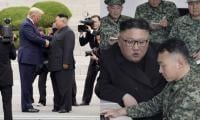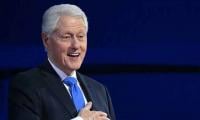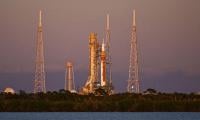Top professionals discuss ways to elevate status of higher education
Islamabad : Higher education professionals from across Pakistan and the United States converged in town for a two-day activity where intellectual contributions were made to identify challenges common to Higher Education Institutions (HEIs), to build linkages with the global higher education community, to create an interface for stakeholder engagement by building synergies, and to brainstorm possible solutions to elevate the status of higher education in Pakistan.
The occasion was an inaugural stakeholders’ consultative meeting organized by the USAID-funded Higher Education System Strengthening Activity (HESSA) project. Titled ‘Building Strategic Alliances,’ the event was attended by vice chancellors, pro vice chancellors, deans, senior faculty members, directors, and heads of departments of public sector HEIs.
The Chief of Party of HESSA, Dr. M Aslam Chaudhry—research professor of economics at the University of Utah—introduced the scope of the project and its implementation approach. He shared that one of the project’s goals is to drive the system towards delivering market-driven education and research for enhancing youth employability. Dr. Aslam shared the limelight with Dr. Frankie Laanan and Dr. Randy McCrillis from the University of Utah, and Dr. Steve Burian from the University of Alabama. The visiting delegates discussed different dimensions of the project including leadership and institutional governance, education research and entrepreneurship, and students’ support services.
MNA and Chairman of the Pakistan Engineering Council, Engr. Najeeb Haroon, chaired the activity, flanked by Dr. Akbar Zaidi, Executive Director, IBA Karachi, Principal Investigator, University of Utah, Dr. Michael E Barber, and VC of NED University of Engineering and Technology, Karachi, Dr. Sarosh Lodhi.
Speaking on the occasion, Dr. Lodhi highlighted the need for resource mobilization and the establishment of sustainable higher education partnerships. Pro VC of Balochistan University of IT, Engineering and Management Sciences, Dr. Abdul Rehman, appreciated USAID for providing a platform for interaction with experienced professionals. Dr. Zaidi talked about improving HESSA linkages with Pakistan’s HEIs. Dr. Nain Tara from Women’s University, Swabi, said: “Today’s event provided us the footprints that we can follow to develop and stabilize our universities.”
The rector of the National University of Technology, Khalid Asghar said, “The concept of HESSA excites me because it addresses all four major components of higher education namely, leadership, faculty, students, and the research environment.” Director Research NUST, Dr. Hamood-ur-Rehman, said the activity highlighted three things: “that we can improve the standard of teaching in HEIs; that we can take the research structure forward to the industry; and that we need to prioritize applied research.” Dr. Azra Yasmin from Fatima Jinnah Women’s University appreciated HESSA for being instrumental in the development of new collaborations with local and international universities. Representing NED-UET, Dr Ahmed Sheikh thanked HESSA for enabling a healthy discussion on futuristic policy decisions vis-à-vis the leadership and governance of HEIs, and underlined the need for data-driven decisions to attain better quality in higher education.
Dr. Aqsa Shabbir from Lahore College for Women University said, “HESSA is an excellent initiative which will bring improvements in the quality of higher education. We have taken the first step already as this event provided participants with a great networking opportunity where we were able to shortlist common problems.”
Other participating senior leadership of HEIs also expressed similar sentiments over the prospects of HESSA emerging as a game-changer in shaping the future of higher education in Pakistan.
-
 Royal Family All Set To Show Unity As King Charles 'plans Abdication'
Royal Family All Set To Show Unity As King Charles 'plans Abdication' -
 Astronomers Spot Nearly Invisible Galaxy Packed With Dark Matter
Astronomers Spot Nearly Invisible Galaxy Packed With Dark Matter -
 Kim Jong Un Searches For Reason To Join Iran War In Viral Memes
Kim Jong Un Searches For Reason To Join Iran War In Viral Memes -
 Zach Braff Opens Up On Childhood Friendship With Singer Lauryn Hill
Zach Braff Opens Up On Childhood Friendship With Singer Lauryn Hill -
 Aryna Sabalenka Announces 'forever' With Partner Georgios
Aryna Sabalenka Announces 'forever' With Partner Georgios -
 Trump To Meet Tech Giants: White House Energy Pledge Aims To Shield Consumers Ahead Of Midterms
Trump To Meet Tech Giants: White House Energy Pledge Aims To Shield Consumers Ahead Of Midterms -
 Meghan Markle, Prince Harry Believe They Could Help King Charles, William As Royals Face Major Crisis
Meghan Markle, Prince Harry Believe They Could Help King Charles, William As Royals Face Major Crisis -
 Rob Rauscha Steps Away From Reality TV After 'The Traitors' Triumph: 'It's Not A Life I Want'
Rob Rauscha Steps Away From Reality TV After 'The Traitors' Triumph: 'It's Not A Life I Want' -
 Val Chmerkovskiy Shares Message With Fans After Hospitalization: 'Thank God, No Brain Tumour'
Val Chmerkovskiy Shares Message With Fans After Hospitalization: 'Thank God, No Brain Tumour' -
 China Achieves Breakthrough In High-speed Satellite-to-ground Laser Communication
China Achieves Breakthrough In High-speed Satellite-to-ground Laser Communication -
 AI Is Creating Jobs, Not Replacing Them—Here’s Why
AI Is Creating Jobs, Not Replacing Them—Here’s Why -
 Savannah Guthrie Receives Exciting Update In Mom Nancy Abduction Case
Savannah Guthrie Receives Exciting Update In Mom Nancy Abduction Case -
 Sharon Osbourne Gives Exciting Update On OzzFest
Sharon Osbourne Gives Exciting Update On OzzFest -
 Prince Harry Sends Strong Message To William Regarding Princess Eugenie, Beatrice
Prince Harry Sends Strong Message To William Regarding Princess Eugenie, Beatrice -
 Elon Musk: Tesla Set To Lead In AGI And Revolutionary Atom-shaping AI
Elon Musk: Tesla Set To Lead In AGI And Revolutionary Atom-shaping AI -
 Harry Styles Gets Candid About ‘existential’ Crisis As Album Release Nears
Harry Styles Gets Candid About ‘existential’ Crisis As Album Release Nears



